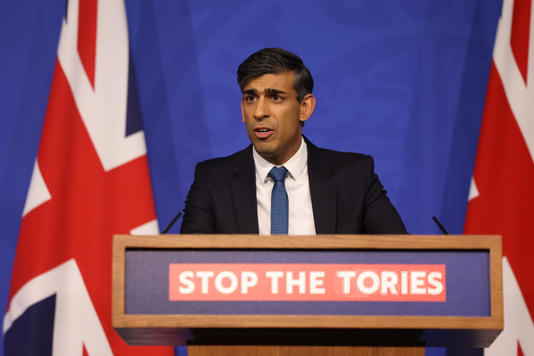Did Your Vote Matter?

I gave a speech this week on Proportional Representation for Make Votes Matter, and it got me thinking about whether your vote mattered in the last election. I suspect that the chances are that it didn’t no matter where you are, who you voted for and who won purely because of how the odds work. So, here are just a few of the ways that your vote was wasted. Your Candidate Didn’t Win Under the current system, if you make the cardinal sin of voting for a candidate that doesn’t win, that vote is wasted by design. Your candidate doesn’t get any political power as a result of coming second or third in the ballot, so a vote for a candidate that doesn’t win is essentially thrown in the bin. This discourages you from voting for a candidate that you don’t think can outright win, thereby shoring up the de facto two-party system that we have been dealing with for centuries. Your Candidate Won Comfortably Congratulations! But did your vote matter? Arguably this is the case that most people probably assume makes their vote matter, but I would argue that it’s not quite that straightforward. Imagine a two-candidate race where the winner gets 80% of the votes and the loser gets 20%. In this case, it is obvious that the 20% of votes for the loser were all wasted, but what about the 80%? In this case, the winner actually only needed one more vote than 20%, which for all intents and purposes is the same as 20% for a large enough ballot. once that total is achieved, all further votes for the winner are also wasted – a candidate doesn’t become more of a winner if they win by 80% or 0.8% of the electorate. This means that in this example, three-quarters of the votes for the winner are also wasted, meaning that if you cast a vote for the eventual winner, you only had a one in four chance of it actually mattering. Your Candidate Narrowly Won In this case, your vote likely had the most impact. If the example above actually had the winner with 40% of the vote and the runner up with fewer votes but still rounding to 40%, that means that every vote for the eventual winner was important. Conversely, all other votes were essentially ignored by the system, so even in this example of a very narrow margin of victory 60% of the electorate’s votes would be ignored by design. A Real Example Looking at the 2023 by election in Uxbridge and South Ruislip, the results were as follows: At first glance, this might look like it was only worth voting for Steve Tuckwell, but this is essentially what the system is deigned to do – to make it feel like only voting for the winner matters. But it is important to remember that this seat came very close indeed to flipping to Labour, which would have meant that votes for Steve Tuckwell were wasted and a proportion of votes for Danny Beales were the only ones that mattered, at least from the perspective of deciding an MP. Even more importantly, this vote was almost as close as it is possible to get, and it still meant that only 44% of votes cast actually mattered. By design, at least 50% of the electorate is disenfranchised using the First Past The Post system, which is horrible for democracy. What About Short Money? Short Money is the consolidation prize for voting for a party where the candidate didn’t win in your area. Assuming the party returns at least one MP nationally, Short Money is awarded to them in proportion to the number of votes they received in all elections across the country, and it is designed to help the MPs to pay for things like research that the government has access to as a matter of course. In essence, it is designed to allow parties that don’t form a government to at least have a fighting chance at representing their constituents, even if the government shuts them out of all major decisions. This means that even a wasted vote for electing an MP is useful to the party that candidate stood for, as long as the party managed to win at least one seat in all 650 constituencies. It’s not perfect, but it means that you can still vote for the party that you prefer even if they have no chance in your area.
Tory Edits

I have made a few edits of various Tory advertising posters or articles over the last year. Here’s a selection: CREATOR: gd-jpeg v1.0 (using IJG JPEG v62), quality = 85
ReformUK’s Economic Ineptitude

The ReformUK party is not like every other political party. Originally the Brexit Party, the membership of this so-called political party is three individuals, namely Richard Tice, Tracy Knowles and Mehrtash A’Zami. No-one else has voting rights for the structure, leadership or policies of the party. As such, it is designed to be authoritarian in nature rather than democratic, which is the antithesis of my own beliefs and the Liberal Democrats in general. However, this structure is – amazingly – not the worst or only major problem for the “party”. Economic Woes On 24 February 2024, the ReformUK party announced a list of tax reforms (pardon the pun). This was broadly summarised as follows: Change the higher rate threshold from £50,000 to £70,000. Increase the personal allowance for income tax from £12,570 to £20,000. Set the inheritance tax allowance to £2 million (presumably this is per person, so the allowance would be £4 million for couples). Cut corporation tax to 15% (I saw this figure on Twitter rather than in the independent article, so this is less reliable than the others, but is certainly in keeping with their other promises). Add a 20% tax relief for healthcare fees and private school fees. This all seems very appealing if you have wealth and don’t rely on anything that is cut to fund this gift to the wealthy. So what is being cut to fund this tax giveaway? Nothing. They have mentioned that they will abandon net zero policies and eliminate illegal migration. The former of these is something of a red herring, because renewable energy right now is cheaper than fossil fuel power, so abandoning net zero actually costs money if we look at energy, the single largest contributor to our CO2 emission. The latter is also a red herring because the total cost of migration is essentially negligible. As part of my Twitter ranting about this, someone posted an article telling me that illegal migration (as they put it) had cost some £36 billion since 2020. This sounds like a large figure until you look at the annual amount of £9 billion and compare it to, say, the annual budget for NHS England, some £163 billion. In short, even if the cost of “illegal” migrants could be completely eliminated with no additional costs for whatever scheme replaced the existing structure, they would not even be able to fund a single month of NHS England’s budget with the annual saving. In short, they have not proposed anything that would possibly offset the cost of massive tax cuts, and we saw what happened when someone last tried to announce uncosted tax cuts for the wealthy. This is worse. Much worse.
Resignations on the Horizon?

In case you have been living under a rock or on the moon, you will no doubt have seen the news this week that the recent drama about the Horizon Post Office scandal hit the screens and forced the government into action. Sadly, their action has been the same as always, trying to pin the blame on someone – anyone – else. Right now, their two targets are Keir Starmer, who was directing the Public Prosecutions Service at the time when the sub-postmasters were prosecuted, and Ed Davey, who was Post Office Minister as part of the coalition government at the time. Was it either of their faults? No, definitely not. Was this the fault of the Tories in government? No. I am not writing this to assign blame to them, but instead to step above petty blame games and talk about the real culprits. Fujitsu At the heart of this scandal is the Horizon software, which was essentially a cash reconciliation programme installed in sub-branches of the Post Office in the 1990s. This software was developed and ultimately installed by ICL Pathways Limits, now part of Fujitsu, a large technology company with a pretty strong reputation. Unfortunately, it seems that there was a flaw in the software. For those of us with experience of developing software, this is probably not a surprise – every IT project has bugs, they are essentially unavoidable. However, in this instance the software bug made it appear as though cash was disappearing from sub-branches. I don’t understand the specifics enough to go into details, but these seem to be agreed facts. There also seems to have been some delay over the development of the software, which likely put more and more pressure on the coders to rush the job. To cut a long story short, though, the error seems to have originated from Fujitsu, so when the error was discovered they should have indemnified both the Post Office and the falsely accused Sub-Postmasters. That is what I would expect from a company that released a product which caused harm. This is not saying that they shouldn’t also be subject to fines or sanctions, but rather sets out the bare minimum they should do for rolling out a product which caused so much harm. There is some speculation that Fujitsu were given preferential treatment because their staff included the husband of our current Education Secretary, Gillian Keegan, and given the other cases of Tory corruption we have seen in recent years, this wouldn’t surprise me. The Post Office As I understand it, this is where the true blame lies. The Post Office management were aware of the issues as early as 2000 and didn’t report them back to MPs. They proceeded with charges that they knew – or reasonably ought to have known – were false, and in doing so ruined the lives of over 900 sub-postmasters. These were their staff, they absolutely had a duty of care to look after them, and given these hundreds of people were not guilty of stealing from the Post Office, they absolutely deserve compensation. The Post Office management needs to be investigated for ignoring the issue from 2000 to around 2013, when they finally obtained an assessment from Second Sight (which itself was wrong, as it concluded that the software was fine but the Post Office’s procedures were flawed). This means that for 13 years they had information from sub-postmasters that the software had a major flaw and for 13 years they ignored it. Post Office Ministers? If after reading this you still think that the Post Office Minister might still be to blame, here’s a list of such ministers since Horizon was installed: (Thanks to Christopher Hope for collating the data on the terms and names of the various ministers) The obvious question to ask is “what makes Ed Davey special out of this list?” Why is so much ire being directed at him (as well as Keir Starmer) as though this was his personal failure rather than the 19 other ministers with the exact same duties? Look into the source of said claims and I expect you will find a Tory donor desperate to create news that will keep his friends in power for a little longer. It won’t work. We see through the lies, and the British people will likewise see through the lies when they are presented with unbiased facts. Change is coming, and this might well be the last ever Tory majority government.